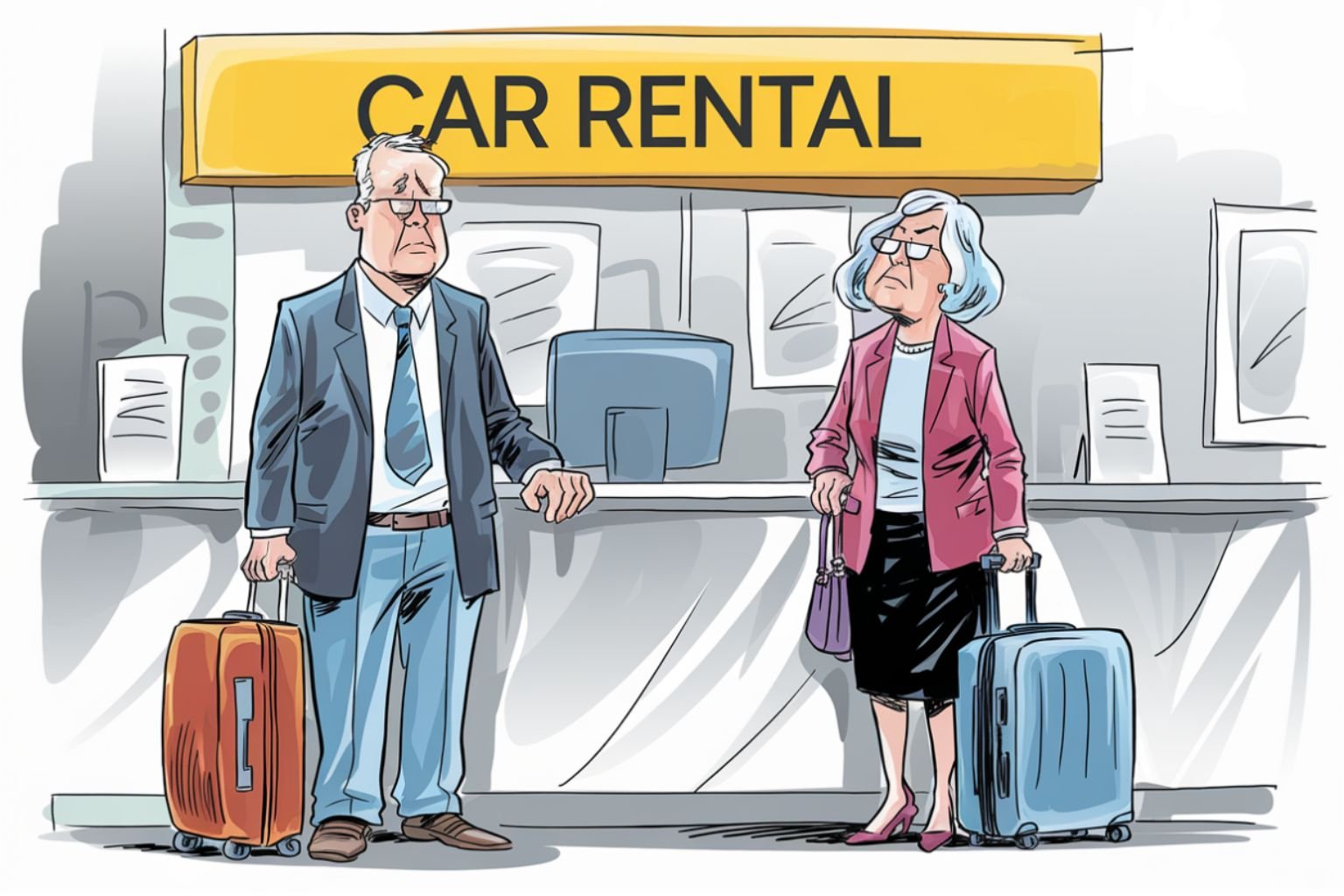Jennifer Book’s problem with a canceled Booking.com vacation rental and Affirm — and the heartbreaking loss of $6,074 — looks like an open-and-shut case.
But it isn’t.
Book reserved a vacation rental in Ocean City, Md., through Booking.com earlier this year. She used Affirm, a service that allows you to buy now and pay later. The total for the vacation rental, with interest, came to $6,074.
Shortly before her visit, Booking.com contacted her with some bad news: Her vacation rental, handled by a company called Evolve, was canceled. When she asked for her money back, Booking.com said it could only give her a credit.
“I have sent multiple emails, messages through the Booking.com app, and placed phone calls as well,” she says. “I have not received a refund.”
Book’s problem with Booking.com and Affirm raises a few questions:
- Should you pay for your vacation through Affirm?
- How do you dispute a charge through Affirm?
- Can Booking.com keep your money and just give you a credit when it cancels?
First, let’s find out what happened to Book’s Booking.com booking.
A problem with Booking.com and Affirm, and a credit she didn’t want
Book had reserved a beach vacation home in Maryland in January for a late June vacation.
“In May, I received an email that my reservation had been canceled due to the sale of the property by the owner,” she says.
Evolve sent her a list of alternative properties, but she could not access them online. So she reached out to Booking.com. (Related: Chased out of his hotel for complaining about a small room. Is this enough compensation?)
“They attempted to locate an alternative property; however none were suitable because we required a pet-friendly home with three bedrooms and two bathrooms,” she recalls. “Most of what they sent were apartments or hotels with only one or two bedrooms and one bathroom.”
Since Evolve could not find a suitable alternate, she asked for a refund. (Related: She lost her Paris vacation rental on a technicality — should I take this case?)
Nope, said a Booking.com representative. Because of the way Affirm is set up, Booking.com could only issue a travel credit. (Related: Booking.com suspended my account. Can you help me get it back?)
“Because I was unable to locate a suitable property on the booking.com platform, I needed the cash refund to book elsewhere,” she told me.
Book protested and reached out to the Booking.com executives whose names I publish on this site. But after a few exchanges with their assistants, the company has gone quiet.
Would she have to accept a credit she doesn’t want — and can’t use?
Should you pay for your vacation through Affirm?
You may have seen an offer to pay for your next trip through Affirm, a popular “buy now, pay later” company. The company has teamed up with several big players in the travel industry, including American Airlines, Booking.com and Expedia.
How it works: Affirm runs a soft credit check and then offers you a loan for your purchase. You’ll choose a repayment plan, typically ranging from 3 to 36 months. This can make a big-ticket item like a vacation rental seem more affordable, and if you qualify for 0 percent APR, you can break the payments into smaller pieces without any charges. (But that’s a big “if.”)
Here’s what you need to know about Affirm: You are taking out a loan, and that affordable payment you see can really add up once you include interest. (Related: Booking.com downgraded my flights from London to Tokyo. Why can’t I get my $3,097 back?)
Remember, if you miss a payment, your credit could take a hit. Also, you’re paying for an asset that has no resale value.
So should you use Affirm? It depends on your financial situation. If you’ve got the cash to pay for your vacation up front, that’s always the best option. You’ll avoid interest charges and won’t increase your debt load. (Here’s our guide to renting a vacation home.)
I highly recommend that you only book a vacation you can afford. But if you’re set on financing your next trip, Affirm might be a better choice than putting it on a high-interest credit card. Just make sure you can comfortably afford the monthly payments and that the interest rate you’re offered is reasonable. (Related: Mold, urine and cockroaches in my vacation rental! Will Vacasa give me a refund?)
Do your homework before you use Affirm. Check the terms carefully and compare the total cost (including interest) to other financing options. Most importantly, make sure that if you need to get a refund, it will go directly back to you — not as a credit.
Bottom line: Avoid going into debt for travel.
How do you dispute a charge through Affirm?
You can dispute a purchase made with Affirm. The process is similar to a credit card dispute.
To dispute your purchase, sign in to your Affirm account either online or through your app. Then click “Manage” and tap the loan you’d like to dispute and navigate to the “Details” section. Then click “Dispute this purchase” at the bottom of the page.
Affirm will ask you a series of questions about your purchase and the nature of your dispute. You can upload evidence about your case.
However, if your loan is still processing, Affirm will not accept your dispute. Our advocacy team hasn’t dealt with enough Affirm cases to know how often customers prevail in a dispute, but the success rate is most likely the same as with a credit card dispute, which is to say, you have a 50/50 chance of getting the charge reversed. (Related: I canceled on time! Why can’t I get my money back from Booking.com?)
As I reviewed the convoluted paper trail between Affirm, Evolve, Booking.com and Book, I concluded that the likely reason Booking.com couldn’t issue a refund was Affirm was not releasing the money.
That’s the problem when you have an extra layer of complexity, like a buy now, pay later loan. It makes seemingly simple things like a refund more complicated, and maybe even impossible.
Can Booking.com keep your money and give you a credit when it cancels?
Booking.com should have refunded Book immediately when it had to cancel her vacation rental. Even if the reservation had been nonrefundable and nonchangeable, a company may not keep your money if it can’t provide the product.
Booking.com may, however, offer an alternative — and if Book had accepted it, then it could have kept her $6,074. But it could not find a suitable alternative.
This is one of the stranger things that has happened recently: Since the pandemic, companies have been behaving as if they can keep your money and not provide a product. It’s illegal and as consumers, we shouldn’t tolerate it.
“This is turning into a very expensive vacation which is placing me in a financial hardship,” says Book.
But not for much longer.
Can our team solve this problem with Booking.com and Affirm?
The back-and-forth between Book and all the companies was agonizing. First, they refused to refund her money. Then they asked for her bank account information, but then disappeared. Weeks had gone by and Book’s Ocean City rental case was almost too painful for me to watch.
My advocacy team and I contacted Booking.com on her behalf. A few days later, I received some good news.
“We have been in touch with the customer to apologize for the inconvenience and have processed a full refund and wallet credit for the customer to use on a future trip as a goodwill gesture,” a representative told me.
A full refund and a credit? Not bad at all.




